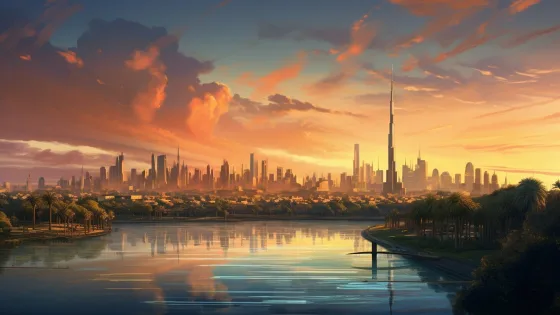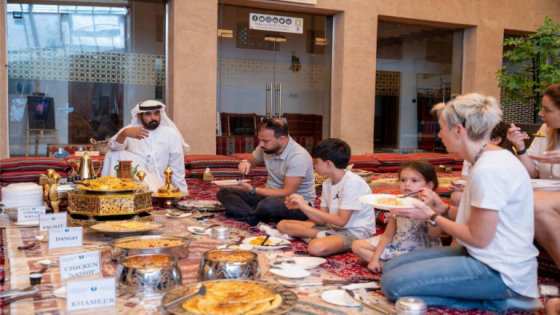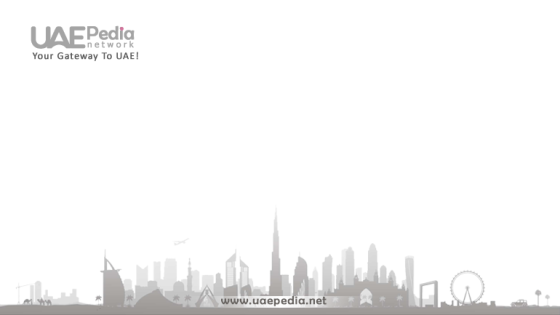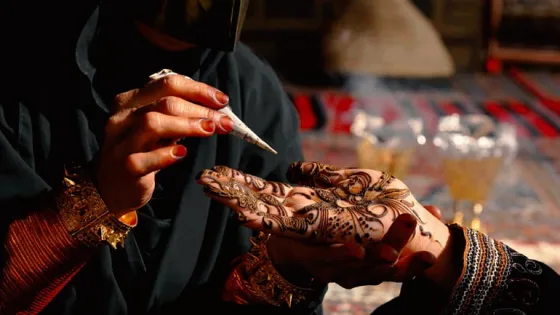Contents
- 1 The Early Years: Formation and Independence
- 2 Building a Nation: The Modernization Era
- 3 Economic Boom: Oil Discovery and Diversification
- 4 Cultural Heritage: Preserving Tradition in a Modern World
- 5 Global Influence: Short History of UAE on the World Stage
- 6 Architectural Marvels: Shaping the Skyline
- 6.1 What makes the UAE’s modern history remarkable?
- 6.2 What sporting achievements will be covered in the section “Sporting Achievements: Putting UAE on the World Map”?
- 6.3 Which architectural marvels will be highlighted in the section “Architectural Marvels: Shaping the Skyline”?
- 6.4 What will be discussed regarding the UAE’s global influence?
- 6.5 How does the UAE preserve its cultural heritage?
- 6.6 How did the discovery of oil impact the UAE’s economy?
- 6.7 What topics will be covered in the section “Building a Nation: The Modernization Era”?
- 6.8 What are the SEO relevant keywords associated with the short history of UAE?
- 6.9 What topics does the short history of UAE cover?
The Short History of UAE dates back to the early 19th century, when the region was characterized by a series of small, independent sheikhdoms. Over time, the seven emirates that make up the modern-day UAE began to band together, forming alliances and partnerships that ultimately led to the country’s unification in 1971.
Since then, the UAE has experienced significant development across all areas of society, including in the economy, infrastructure, and culture. This progress has been driven by visionary leadership, a commitment to economic diversification, and an emphasis on cultural preservation.
Key Takeaways
- The UAE has a rich history dating back to the early 19th century when the region was made up of small, independent sheikhdoms.
- The Short History of UAE was formed in 1971 as a federation of seven emirates.
- The UAE has undergone significant development in the areas of economy, infrastructure, and culture.
- The Short History of UAE has been driven by visionary leadership and a commitment to economic diversification and cultural preservation.
- The UAE has emerged as a thriving metropolis and a global player in the 21st century.
“read more about: Annual Leave Entitlement UAE“
The Early Years: Formation and Independence
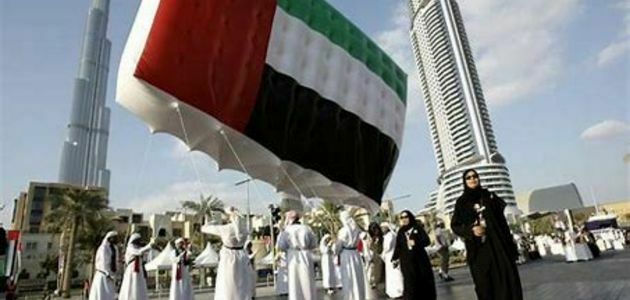
The United Arab Emirates (UAE) was founded on December 2, 1971, after six of the seven emirates of the Trucial States decided to form a federation. The seven emirates included Abu Dhabi, Dubai, Sharjah, Ajman, Umm Al Quwain, Fujairah, and Ras Al Khaimah.
- The UAE’s journey towards independence began in the early 1950s, when the emirates started to explore the possibility of forming a closer union. However, it was not until the mid-1960s that serious discussions and negotiations began.
- In 1968, the British announced their intention to withdraw from the Gulf region by 1971. This provided a sense of urgency for the emirates to unify. Negotiations between the emirates continued throughout 1971, resulting in the signing of the UAE’s constitution on December 2 of that year.
- Sheikh Zayed bin Sultan Al Nahyan, the ruler of Abu Dhabi, was elected as the first President of the UAE, while Sheikh Rashid bin Saeed Al Maktoum, the ruler of Dubai, became the Vice President. The other emirates were represented in the newly formed federal government.
The UAE’s independence marked a significant milestone in its national history, as the federation was able to assert its sovereignty and chart its own course for development and progress. The country has since become a model for regional cooperation and stability.
“you may also read: UAE Green Spaces“
Building a Nation: The Modernization Era
The period of modernization in the Short History of UAE is a significant chapter in the country’s history. Sheikh Zayed bin Sultan Al Nahyan, the founding father of the UAE, played a vital role in transforming the country’s economy, infrastructure, and social fabric. His visionary leadership and strategic planning paved the way for the UAE’s rapid development.
During this era, the UAE witnessed significant milestones and projects that contributed to its modernization. The country introduced policies and initiatives that led to the expansion of industries and the diversification of the economy beyond oil. The establishment of free zones, such as Jebel Ali Free Zone and Dubai Internet City, attracted foreign investment, and made the UAE a regional hub for trade and commerce.
The modernization era also saw the development of world-class infrastructure, including airports, seaports, highways, and railways. The UAE invested heavily in these projects, enhancing the country’s connectivity and accessibility. The construction of iconic landmarks, such as the Burj Khalifa and the Dubai Mall, further cemented the UAE’s status as a global destination.
The UAE’s commitment to education and human development also played a crucial role in its modernization. The country invested in education and healthcare, improving the standard of living and the quality of life for its citizens. The government also introduced policies to promote gender equality and empower women in all sectors.
Overall, the modernization era in the UAE marked a significant turning point in the country’s history. It propelled the UAE from a desert region to a modern and thriving nation. Today, the UAE continues to build on this legacy, with a focus on innovation, sustainability, and global leadership.
“read more: UAE Public Holidays 2023“
Economic Boom: Oil Discovery and Diversification
The discovery of oil in the UAE marked a significant turning point in the country’s history. In the 1950s and 1960s, oil exploration and production began in Abu Dhabi, Dubai, Sharjah, and other emirates, leading to a surge in revenue and economic growth. The UAE quickly became one of the world’s leading oil producers, granting its leaders the resources needed to transform the country into a modern and prosperous nation.
As the UAE’s economy continued to expand, the government recognized the need for diversification beyond oil to ensure long-term sustainability. In the 1970s and 1980s, the government invested heavily in infrastructure, education, healthcare, and tourism, among other areas. This led to the development of world-class airports, seaports, highways, universities, hospitals, and cultural attractions that further boosted the UAE’s economic competitiveness.
Key Historical Events in UAE
| Year | Event Description |
|---|---|
| 1958 | Oil exploration and production begins in Abu Dhabi |
| 1971 | The UAE is formed, with oil-rich Abu Dhabi as its capital |
| 1973 | The UAE becomes a member of OPEC |
| 1975 | The UAE’s first offshore oil field is discovered |
| 1985 | The Dubai International Financial Centre is established |
Today, the UAE’s economy is one of the most diversified in the region, with a strong focus on sectors such as finance, tourism, logistics, and renewable energy. The country continues to attract foreign investment and talent due to its favorable business environment, strategic location, and world-class infrastructure. The success of the UAE’s economic diversification strategy has positioned the country as a leading player in the global economy, and as a model for other countries looking to transition from resource-based to knowledge-based economies.
“read also: Business Banking in UAE“
Cultural Heritage: Preserving Tradition in a Modern World
The United Arab Emirates is a country rich in culture and history. From ancient forts and mosques to modern art galleries and museums, the UAE is home to a wealth of historical landmarks that showcase its unique heritage.
- One such landmark is the Al Jahili Fort in Al Ain, which was built in the 1890s and was formerly the residence of Sheikh Zayed bin Sultan Al Nahyan. Today, it is a museum that houses exhibitions on the history of the UAE and the development of its society.
- The UAE is also home to the Sheikh Zayed Grand Mosque, one of the largest mosques in the world. This stunning architectural masterpiece features 82 domes and four minarets and is adorned with intricate floral designs and calligraphy. Visitors can take guided tours of the mosque and learn about its history and cultural significance.
- The Dubai Museum, housed in the city’s oldest building, the Al Fahidi Fort, is another must-visit attraction. The museum features a collection of artifacts and exhibits that give visitors a glimpse into Dubai’s Bedouin past and its transformation into a modern city.
- Cultural festivals are also an important part of the UAE’s heritage. The Dubai Shopping Festival, for example, is an annual month-long event that features cultural performances, art exhibitions, and shopping discounts. The Abu Dhabi International Book Fair is another cultural event that brings together writers, publishers, and book lovers from around the world.
- Preserving the UAE’s cultural heritage is an important task, and the government has established several initiatives to ensure that the country’s traditions are passed down to future generations. These include the establishment of the Sheikh Mohammed Centre for Cultural Understanding, which offers cultural tours and educational programs, and the establishment of Heritage Villages, which showcase traditional Emirati life and customs.
Overall, the UAE’s historical landmarks and cultural festivals are a testament to the country’s rich heritage and its commitment to preserving its traditions in a rapidly changing world.
Global Influence: Short History of UAE on the World Stage
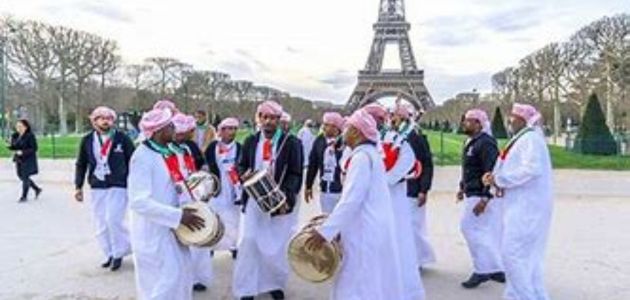
The UAE’s modern history is closely linked to the country’s growing global influence. This influence has been achieved through active participation in global affairs, diplomatic relationships with other countries, and contributions to areas such as humanitarian aid, peacekeeping, and sustainable development. The UAE’s leaders have sought to promote the country as a role model for other nations, and their efforts have not gone unnoticed.
One of the key areas of the UAE’s global influence is in the field of humanitarian aid. The country has been a major contributor to international efforts to address humanitarian crises, providing aid and support to countries affected by conflicts, natural disasters, and other crises. The UAE has also played an important role in peacekeeping efforts, contributing troops and resources to missions in various countries around the world.
Another area of the UAE’s global influence is in sustainable development. The country has taken a leading role in promoting sustainable practices and technologies, investing in renewable energy and infrastructure projects that aim to reduce carbon emissions and combat climate change. The UAE has also been a strong advocate for sustainable development goals at the United Nations, working to promote awareness and action on issues such as poverty, hunger, and environmental degradation.
The UAE’s growing global influence has been recognized by other nations and international organizations. The country has been elected to a number of key positions in global organizations, including the International Atomic Energy Agency, the International Renewable Energy Agency, and the United Nations Security Council. The UAE has also been awarded the honor of hosting major international events, such as the World Expo 2020, which is expected to attract millions of visitors from around the world.
Architectural Marvels: Shaping the Skyline
The UAE’s architectural marvels have transformed its skyline, making it a hub for groundbreaking designs and impressive feats of engineering. The most iconic of these marvels is the Burj Khalifa, the tallest building in the world. This towering structure stands at 828 meters and boasts 163 floors, offering panoramic views of the city.
Another notable addition to the skyline is the Palm Jumeirah, an artificial island shaped like a palm tree. This man-made marvel was created using reclaimed land and is home to a variety of luxury hotels and resorts.
In addition to these impressive structures, the UAE is also home to a number of other landmarks that showcase the country’s rich history and culture. For example, the Sheikh Zayed Grand Mosque in Abu Dhabi is a stunning example of Islamic architecture, with its intricate domes, minarets, and geometric patterns. Other notable landmarks include the Dubai Miracle Garden, the Etihad Museum, and the Abu Dhabi Falcon Hospital.
The UAE’s commitment to innovation and design has made it a leader in modern architecture, and its skyline continues to evolve with new and exciting developments.
What makes the UAE’s modern history remarkable?
The UAE’s history is remarkable due to its transformative journey from humble beginnings to a dynamic and cosmopolitan nation. The visionary leadership, economic diversification, cultural preservation, and global influence have all contributed to the UAE’s thriving metropolis and its status as a global player in the 21st century.
What sporting achievements will be covered in the section “Sporting Achievements: Putting UAE on the World Map”?
The section “Sporting Achievements: Putting UAE on the World Map” will focus on the UAE’s successful hosting of international sporting events like the Dubai Tennis Championships and the Abu Dhabi Grand Prix. It will also discuss the country’s accomplishments in various sports on a global scale.
Which architectural marvels will be highlighted in the section “Architectural Marvels: Shaping the Skyline”?
The section “Architectural Marvels: Shaping the Skyline” will highlight iconic structures in the UAE, such as the Burj Khalifa and the Palm Jumeirah. The significance of these structures and their impact on the country’s image and tourism industry will be discussed.
What will be discussed regarding the UAE’s global influence?
The section on the UAE’s global influence will explore the country’s diplomatic relationships, participation in global organizations, and contributions to areas such as humanitarian aid, peacekeeping, and sustainable development.
How does the UAE preserve its cultural heritage?
The UAE preserves its cultural heritage through the conservation of historical landmarks, the establishment of museums, and the promotion of cultural festivals. These efforts aim to showcase and sustain the country’s traditions and history.
How did the discovery of oil impact the UAE’s economy?
The discovery of oil in the UAE fueled economic growth and allowed for diversification beyond the oil industry. The revenue from oil exports played a crucial role in shaping the UAE’s economy and facilitating the development of various industries.
What topics will be covered in the section “Building a Nation: The Modernization Era”?
The section “Building a Nation: The Modernization Era” will cover Sheikh Zayed bin Sultan Al Nahyan’s leadership and his efforts to transform the UAE’s economy, infrastructure, and social fabric. Key milestones and projects contributing to the UAE’s rapid development will also be highlighted.
What are the SEO relevant keywords associated with the short history of UAE?
The SEO relevant keywords associated with the short history of UAE are “Short History of UAE,” “UAE history,” “UAE historical development,” “UAE founding,” “UAE independence,” “UAE national history,” “UAE modern history,” “UAE historical events,” “UAE historical landmarks,” and “UAE modern history.”
What topics does the short history of UAE cover?
The short history of UAE covers various topics, including the formation and independence of the UAE, the modernization era, the economic boom, cultural heritage, global influence, architectural marvels, sporting achievements, and concludes with an overall summary of the UAE’s development.
As demonstrated in this journey through the Short History of UAE, the country has undergone remarkable growth and development. The UAE’s founding, modernization era, economic diversification, cultural preservation, global influence, architectural marvels, and sporting achievements have all contributed to its status as a dynamic and cosmopolitan nation.
Today, the UAE is a thriving metropolis at the forefront of innovation, sustainability, and development. It has become a global hub for trade, tourism, and investment, attracting millions of visitors each year. The UAE’s strategic vision and leadership have played a crucial role in its success, and the country continues to pursue new opportunities for growth and development.
As the UAE looks to the future, it remains committed to its values of tolerance, diversity, and inclusion. The country’s rich history and cultural heritage continue to be celebrated and preserved, while its global contributions serve as a testament to its commitment to making a positive impact on the world stage.
